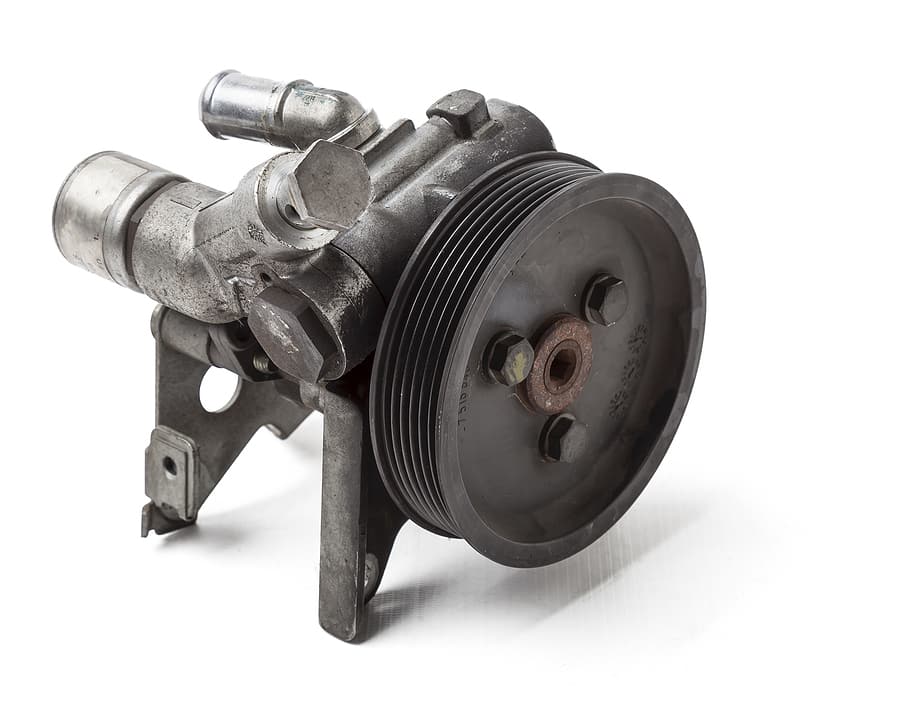
If your power steering pump goes wrong, then chances are you will lose the ability to steer your car easily. Fortunately, there are several warning signs that can give you a heads up of any impending issues, hopefully preventing a major issue or fault whilst on the road.
Find out more in this article, which reviews some of the major symptoms of power steering issues.
What is the Power Steering Pump
The power steering pump ensures that the fluid within the system is at sufficient pressure to allow the steering gear to turn the wheels efficiently and with little effort from the driver. Fluid is pushed into a rotor at the centre of the pump that distributes the fluid to the discharge points, before it enters a reservoir in the power steering system.
Much like other car parts, if the pump is not looked after properly and well maintained, it can slowly become less effective over time, before eventually failing altogether.
Symptoms of Issues with the Power Steering Pump
These are some of the most commonly occurring signs that there’s something up with the power steering pump. Don’t ignore them…
Red Brown Puddles Under the Car
Red brown puddles of fluid underneath your car normally point to some kind of problem with the power steering system. Whilst it more commonly indicates cracks or fissures within the hoses or their fixings, it could be down to a fault within the pump.
Grey Fluid or Metal Shavings in the Fluid
Check your power steering fluid. If it has gone grey, this is usually down to oxidation occurring in the fluid, because air has somehow managed to enter the system (usually through a fault in the pump). Additionally, a defective pump could cause metal to sheer off and enter the fluid.
Squealing Noise on Starting
Normally any squealing coming from the engine could be from one of the belt units – normally the alternator belt, the water pump belt or the cambelt. If there are no problems with these parts, then it could point towards contaminated fluid in the power steering system or problems with the pump.
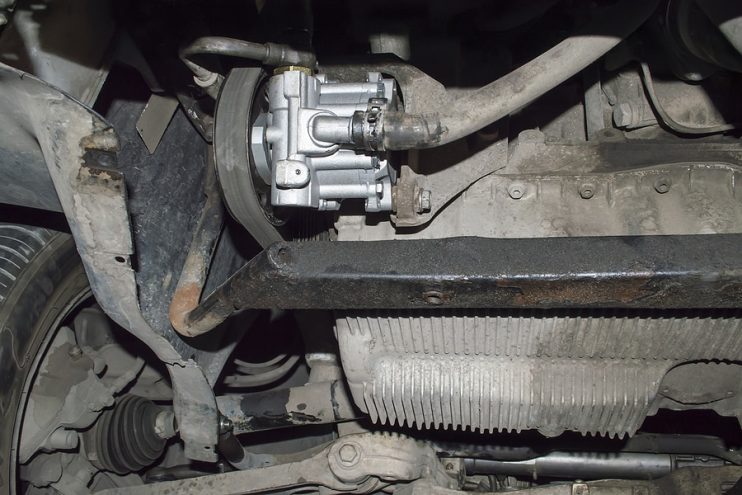
Whining or Groaning Noise
Possibly the most common of all the symptoms, whining and groaning sounds usually mean there’s a problem with the bearing in the power steering pump. Groaning indicates that the pump is also low on fluid, which usually means you’re in danger of damaging other parts of the engine too.
You’ll also notice that the noise gets worse under acceleration or when you’re trying to turn the steering wheel.
Steering Wheel becomes Stiff and Unresponsive
The steering wheel should be easy to turn with the aid of power steering – so if there’s something amiss with the way it usually works, then the fault usually lies within the power steering system. Try turning the wheel. If it’s slow to turn then this is a further indication you have a defective power steering pump.
Power Steering Pump Faults
Once you’ve identified that there’s a problem with the power steering pump, then the next thing on the list is to find out the cause of the fault.
Contaminated Steering Fluid
Power steering is a hydraulic system that relies on the fluid for the transference of power to create motion – helping you control the direction of your vehicle. If dirt, grime, or any other foreign matter contaminates the fluid, it can clog up the whole power steering system, damaging fittings, and even increasing friction between the parts – eventually causing a huge failure. Avoid this problem by making sure you change your fluid at regular intervals.
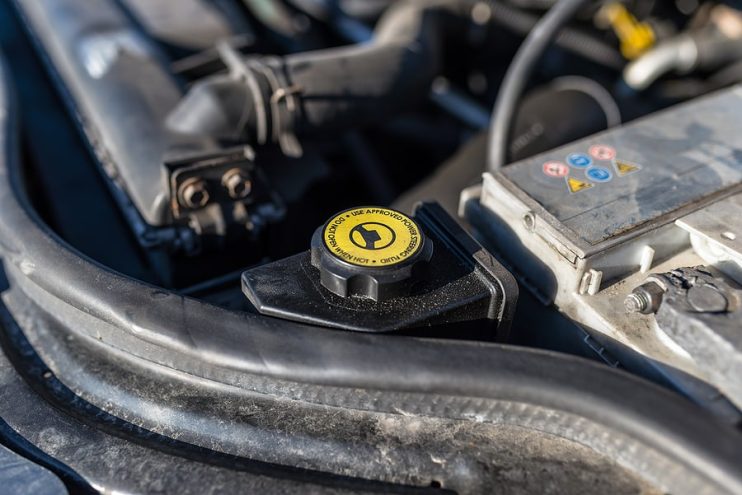
Low Steering Fluid
Just as contaminated steering fluid damages your power steering system, low fluid means that the hydraulic power within the system is lessened, which will put excess strain on the pump and eventually cause it to fail. Additionally, too much fluid is not much better, causing your seal and valves to wear out under pressure.
Worn Out Belt
Power steering also takes advantage of the engine’s power by utilising a drive belt system. Any problems with this belt can cause an adverse reaction from the power steering pump. A failing drive belt is usually accompanied by a squealing noise on starting the car – which can help to give the game away.
Too Much Force
Power steering pumps are built to withstand shocks, jolts and even the impact of potholes. However, they’re not indestructible and can fail over time from rough handling. To ensure that you get the maximum lifespan out of your power steering pump, unless you have a super SUV or 4×4, try to avoid the rough ground and go slowly over seriously distressed road surfaces.
Poor Maintenance
In general, you should be taking good care of your car and ensuring that it’s regularly checked. Avoiding bad roads, driving at a smooth and steady pace, and keeping all the systems topped up and working properly will help keep every part, including the steering pump, working well together.
Final Word
The moment you start hearing strange noises coming from your car, or the steering becomes less responsive or starts feeling stiff – get down to the mechanic and have the steering pump inspected. Having full control whilst your behind the wheel is essential when you’re driving anywhere, so get it checked out as soon as possible.
Of course, if you have the mechanical savvy, you can always source a replacement power steering pump and use our handy guide to help you get it fitted into your car.

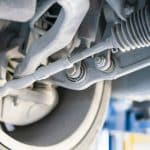




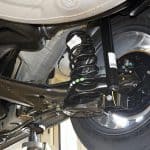
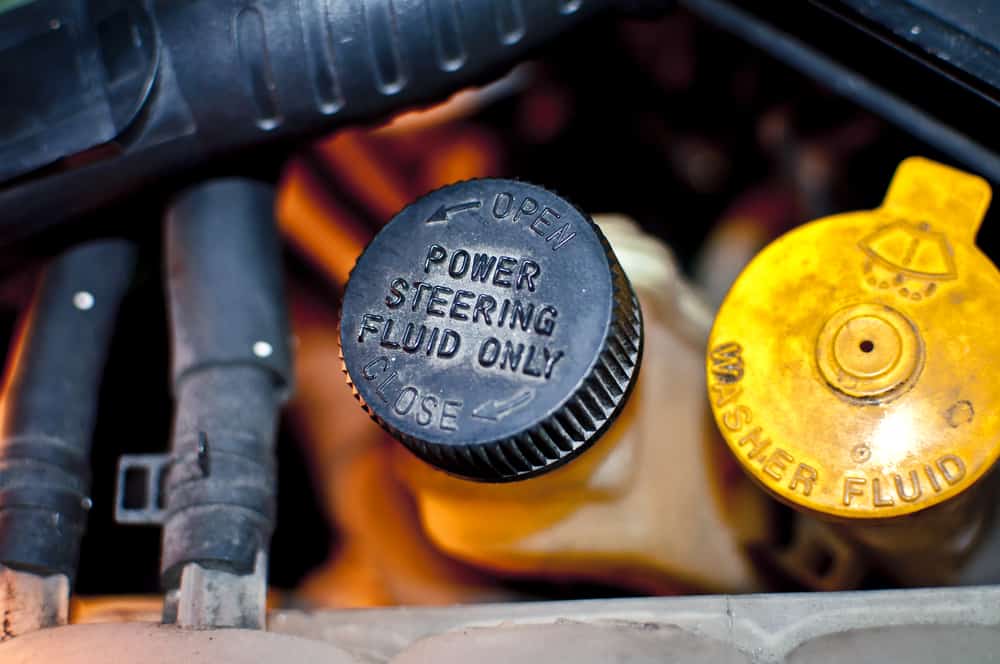
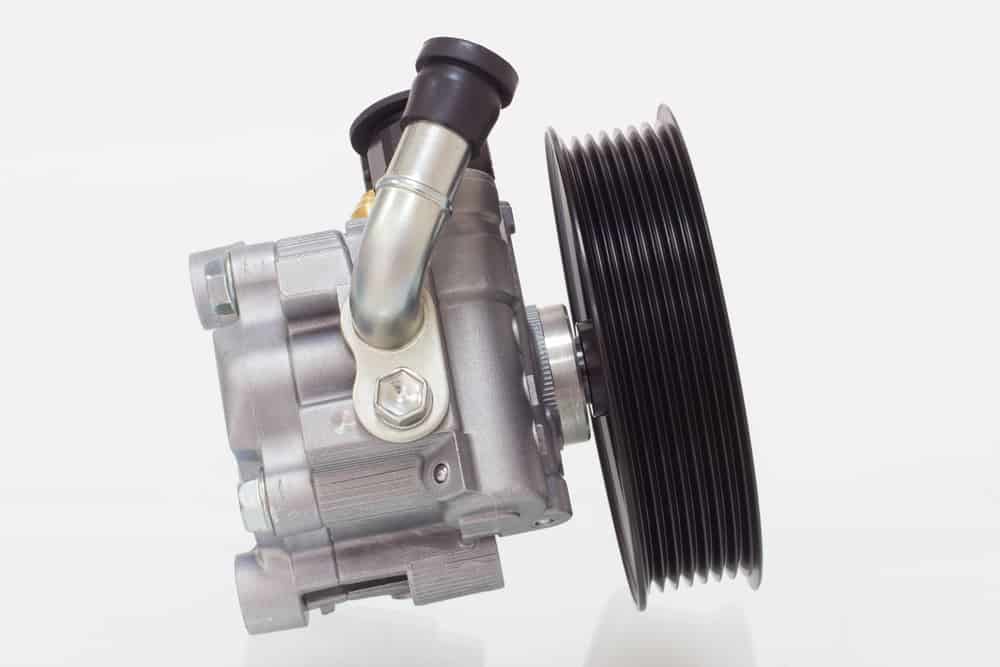

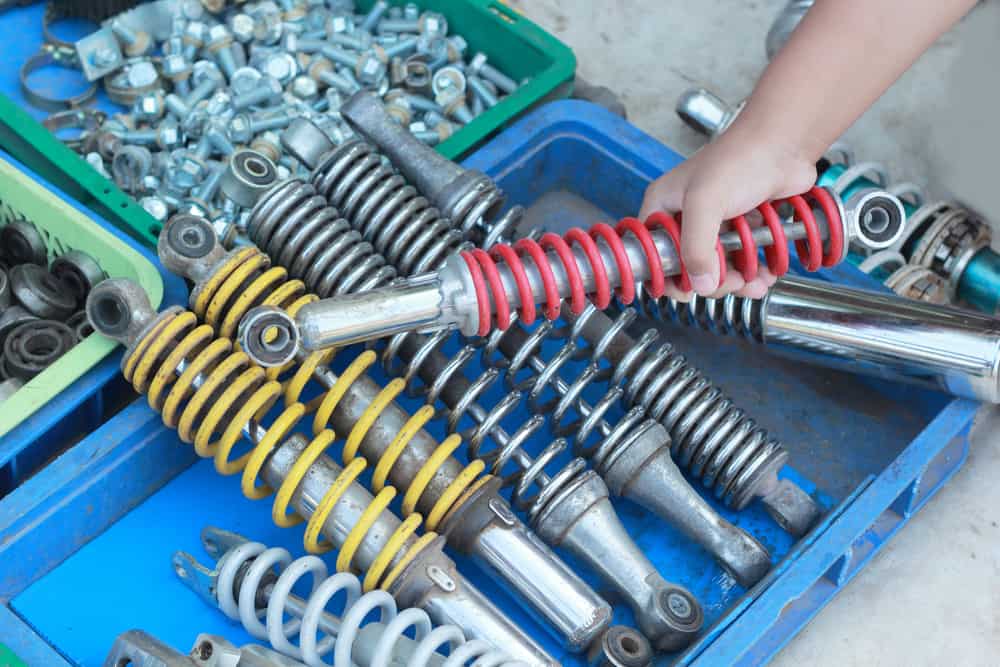
.png)